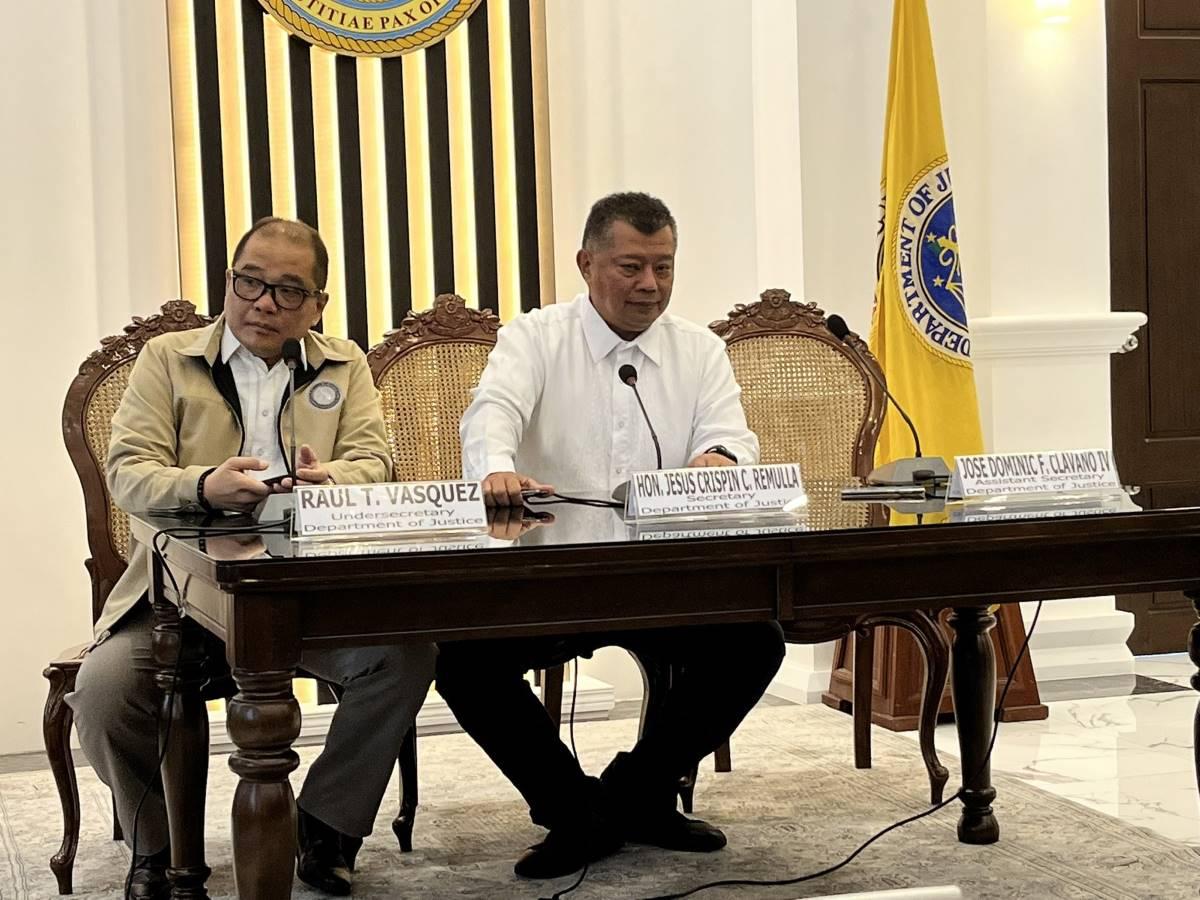Remulla: Philippines culturally not ready for same-sex marriage

The Philippines is not culturally ready for same-sex marriage, Justice Secretary Jesus Crispin Remulla said Monday.
Remulla issued the remark when asked about statements he made over the weekend that the Philippines cannot accept a recommendation on same-sex marriage.
“Sabi nga natin, eh, culturally, our values may conflict with many of the values that they want to impose on us… We are not ready for that. Culturally, we are not ready for that,” he said in a press conference.
(We said, culturally, our values may conflict with the many values that they want to impose on us… We are not ready for that. Culturally, we are not ready for that.)
“That’s what we believe, ha? Unless somebody argues otherwise. That’s our position right now,” Remulla added.
Justice Undersecretary Raul Vasquez also said the Philippines outrightly rejected recommendations made by member-states of the United Nations Human Rights Council on the legalization of abortion and divorce.
“There are several items, however, that outrightly, because of our national identity, our religious beliefs, and our cultural traditions, and the Philippine sovereignty that we need to uphold and protect at all times, there were several things that we did not accept or we rejected outright,” he said.
“And that would be the legalizatioon of abortion and the matter of divorce.”
Earlier, the DOJ said it accepted 200 recommendations during the Universal Periodic Review, a peer-review mechanism of the United Nations Human Rights Council (UNHRC).
Meanwhile, Vasquez said major recommendations that the country accepted include the promotion of the rights of children, protection of women’s rights, the promotion of the rights of indigenous people, and greater protection of civic space.
Legislation
According to Remulla, the delegation could not accept the recommendation on divorce because it is a legislative matter.
Despite this, the Justice secretary said the matter of divorce is debatable.
“That’s why we cannot commit to it is because we cannot impose upon the legislature policy that they have to do within Congress,” he said.
“Actually, it’s a long discussion with the UN on this matter. Because they are of the opinion that if you go to the table, you should be able to tell your country what has to be done. But of course, it does not work that way,” he added.
Rapporteur
Meanwhile, Remulla said two UN special rapporteurs are expected to visit the Philippines in early January 2023.
He said the country also invited UN Special Rapporteur on extra-summary or arbitrary executions Morris Tidball-Binz to the country.
“We invited a third one. Tayo mismo ang nag imbita, third one, on EJKs. Why? Because we want to, we want to increase or maybe do capacity building for our forensic pathologists in the country,” Remulla said.
According to Remulla, Tidball-Binz welcomed the invite.
“And he welcomed our invitation to... Actually our invitation was more of a follow-up already on an agreed program that we had in the UNJP [United Nations Joint Programme] for capacity building of our forensic pathologists,” he said. —KG, GMA Integrated News




